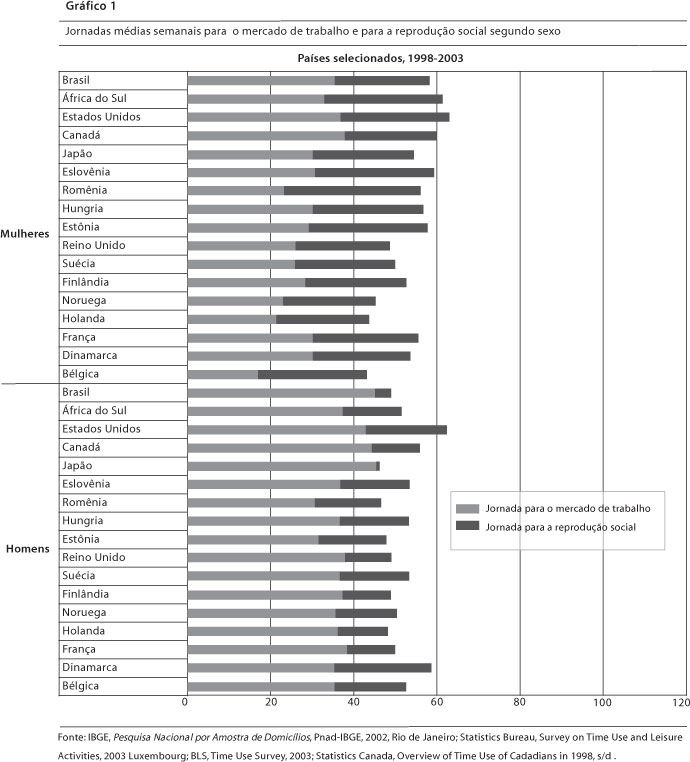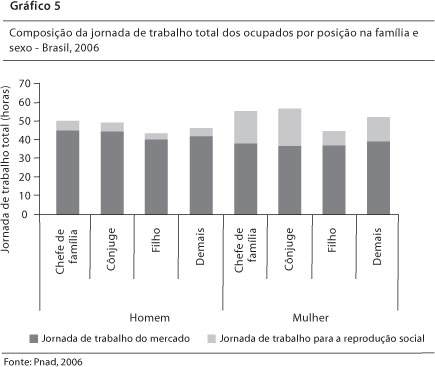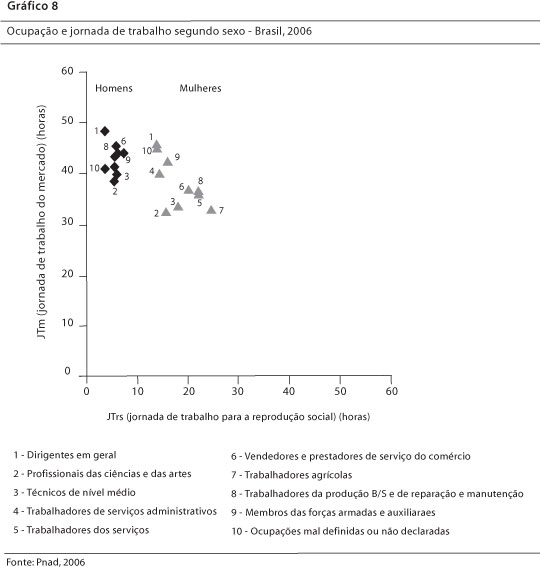The National Survey per Household Sampling (NSHS) has provided, since the early 2000's, information on the existence and extent of work in household chores. This information, added of the work week in the work market, allows for the construction of an index of the intensity of the total work week in the market and in the extra-market. This essay analyzes the intensity of the total work week for men and women, considering the conditions of occupational insertion, family income, and the family cycle. The analysis shows that women who hold less stable occupations that require less qualification, who have better incomes, and have younger children tend to have longer total work weeks compared to that of men in similar occupational and family conditions and also to women who hold more qualified, higher income positions and also have young children. The results of the assay indicate the need for public policies that are capable of building instruments to protect women and that consider the social differentiation related to the type of insertion in the market. Furthermore, the study shows that job policies cannot be restricted to the work market. It is also necessary to reach the family nucleus organization conditions.
time of work; gender; occupation; work market; inequality










